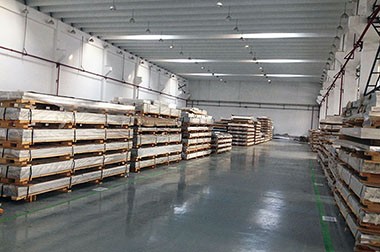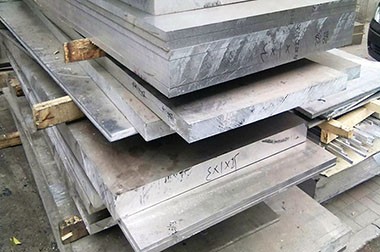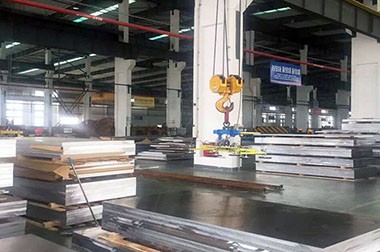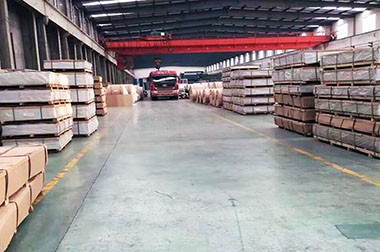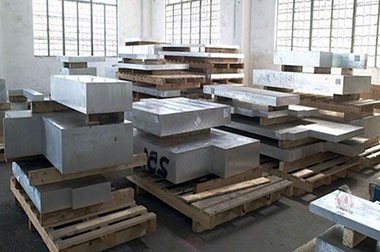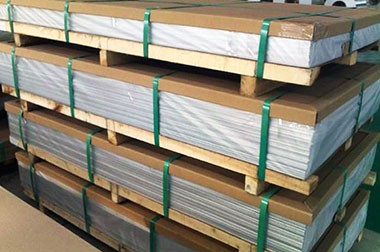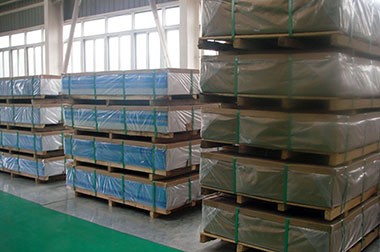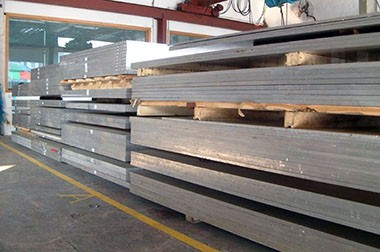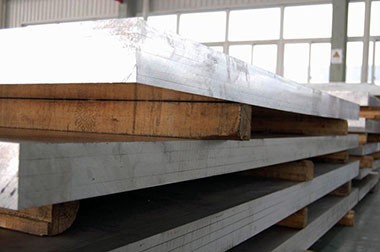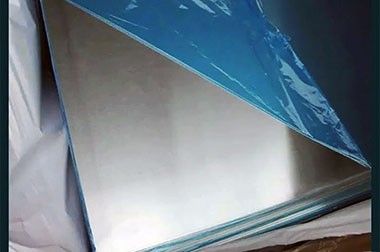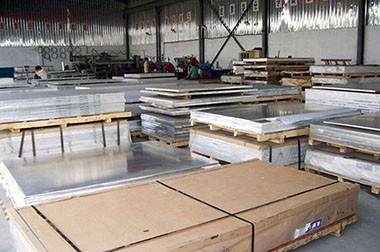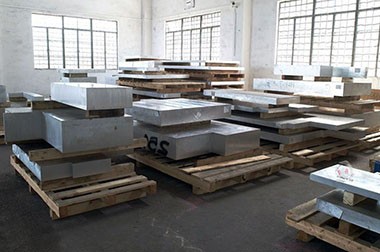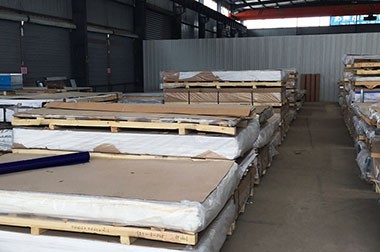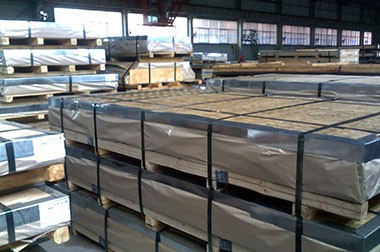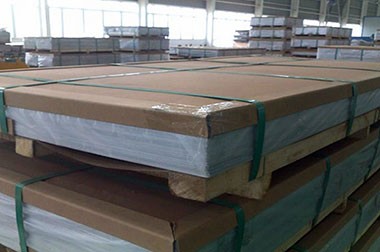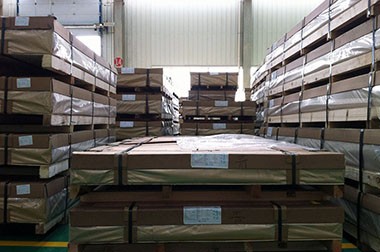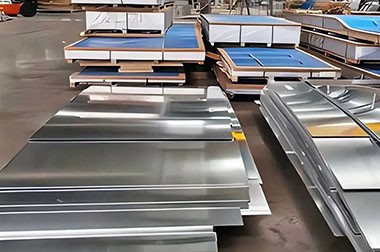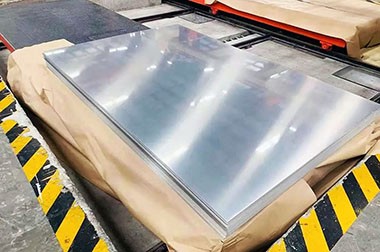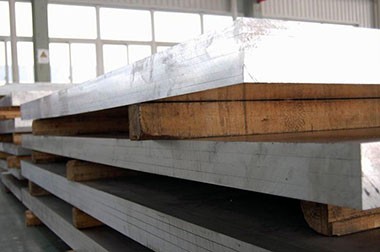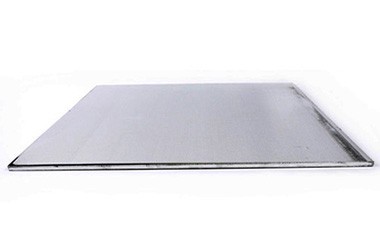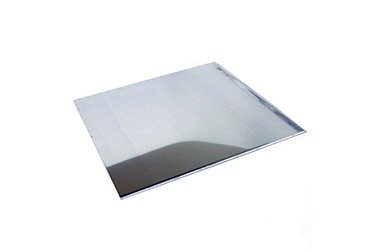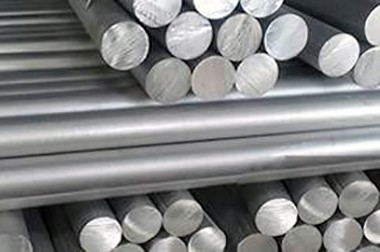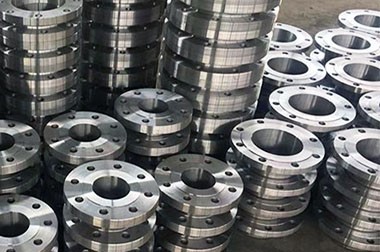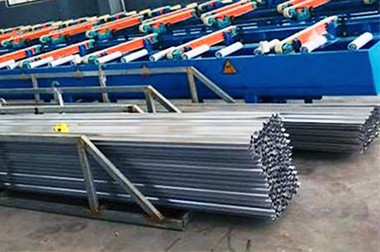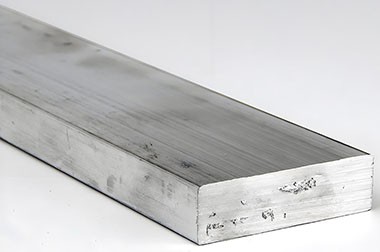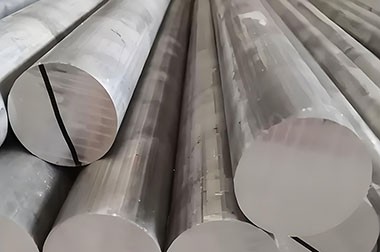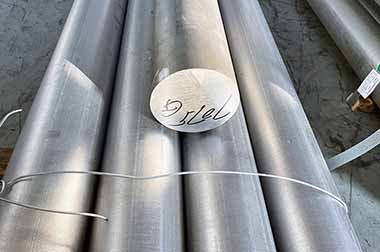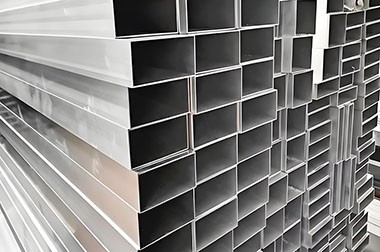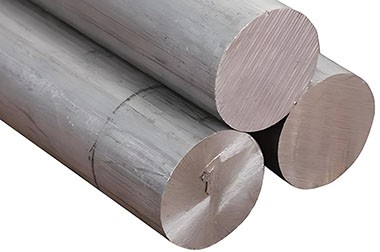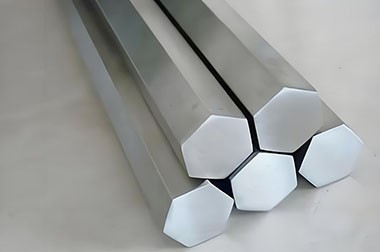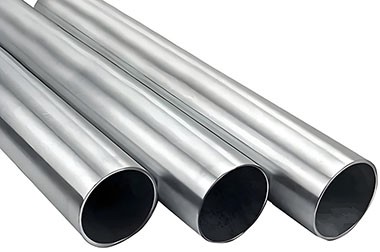7075 T6 T651 T7351 Aircraft Aluminum Plate
What Is 7075 Aircraft Aluminum
7075 aerospace aluminum is a high-strength aluminum alloy primarily used in aerospace and military applications. It contains zinc as the main alloying element, offering excellent mechanical properties and corrosion resistance, making it suitable for manufacturing structural and load-bearing components.
7075 T6 indicates that it has undergone solution treatment and aging, resulting in high strength.
7075 T651 is a tensile treatment under the T6 state, which helps reduce internal stress.
7075 T7351 has undergone special treatment to enhance corrosion resistance and toughness.
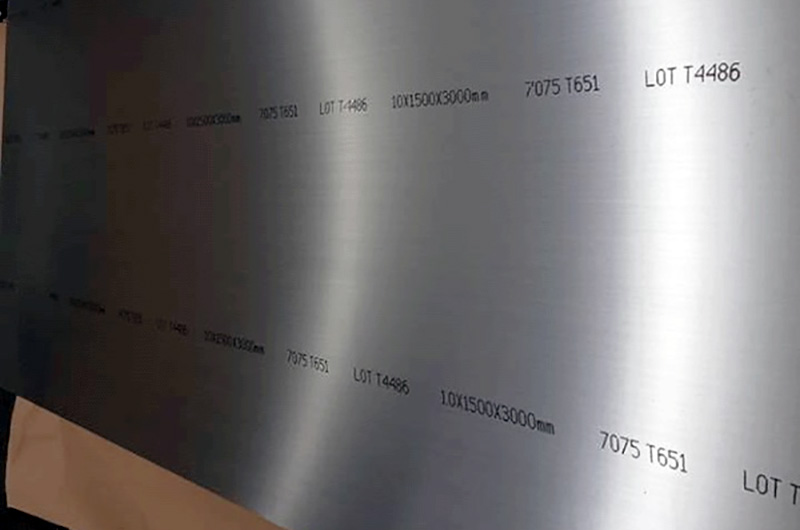
Characteristics of 7075 Aluminum
- 1. High Strength: 7075 aluminum alloy is one of the highest strength aluminum alloys, suitable for bearing high loads.
- 2. Good Machinability: Although 7075 aluminum alloy has high strength, it still offers good machinability after heat treatment, allowing for processing methods like extrusion and milling.
- 3. Heat Treatment Strengthening: 7075 aluminum alloy can further increase its strength through heat treatment (such as aging treatment).
- 4. Corrosion Resistance: While 7075's corrosion resistance is not as high as that of other aluminum alloys (like 6061) in certain environments, its corrosion performance can be improved with suitable surface treatments.
- 5. Lightweight: Compared to steel, 7075 aluminum alloy is lighter at comparable strengths, helping to reduce the overall weight of structures.
Specification of 7075 Aluminum Plate
| Alloy | Type | Temper | Thickness(mm) | Width(mm) |
| 7075 | Thick plate | T651/T7651/T7351 | 4-260 | 1200-3800 |
| Thin plate | T6 | 0.5-4.0 | 1000-2600 |
7075 T6 T651 T7351 Aircraft Aluminum Plate Chemical Composition
| Alloy | Si | Fe | Cu | Mn | Mg | Cr | Zn | Zr | Ti | Standard |
| 7075 | 0.40 | 0.50 | 1.2-2.0 | 0.30 | 2.1-2.9 | 0.18-0.28 | 5.1-6.1 | - | 0.20 | GB/AMS/EN |
7075 T6 T651 T7351 Aircraft Aluminum Plate Mechanical Properties
| Alloy | Temper | Direction | Thickness(mm) |
Tensile strength(mm) RM(Mpa) |
Yield strength RP0.2(Mpa) |
Breaking elongation A50% |
Standard |
|
7075 Thick Plate |
T651 | LT | 6-260 | 570-590 | 495-515 | 10-13.5 | GB/T3380 |
| T7651 | LT | 6-102 | 550-560 | 480-490 | 10.5-12.5 | AMS4045K | |
| T7351 | LT | 6-102 | 500-520 | 420-435 | 10-12.5 | AMS4078 | |
|
7075 Thin Plate |
T6 | - | 0.5-3.5 | 550-570 | 480-500 | 11-15 |
GB/T3880 EN485 ASTM B209 |
Inventory of Haomei 7075 aerospace grade aluminium sheet plate
| Product | Thickness/in | Size/in |
| ASTM B209 Aluminum Plate 7075-T651 | 0.25" | 48" x 120" |
| AMS4048 Aluminum Sheet 7075-T6 | 0.19" | 48" x 96" |
| AMS4048 Aluminum Sheet 7075-T6 | 0.16" | 48" x 72" |
| Aluminum Sheet 7075-O | 0.09" | 48" x 60" |
| ASTM B209 Aluminum Sheet 7075-T73 | 0.19" | 48" x 48" |
| ASTM B209 Aluminum Plate 7075-T651 | 0.375" | 36" x 120" |
| ASTM B209 Aluminum Plate 7075-T7351 | 0.25" | 36" x 96" |
| ASTM B209 Aluminum Plate 7075-T651 | 0.3125" | 36" x 72" |
| ASTM B209 Aluminum Plate 7075-T7351 | 0.5" | 36" x 60" |
| ASTM B209 Aluminum Plate 7075-T651 | 0.5" | 24" x 120" |
| ASTM B209 Aluminum Plate 7075-T7351 | 0.375" | 24" x 96" |
| ASTM B209 Aluminum Plate 7075-T7351 | 0.5" | 24" x 72" |
| ASTM B209 Aluminum Sheet 7075-T73 | 0.071" | 24" x 60" |
| ASTM B209 Aluminum Plate 7075-T651 | 1" | 24" x 48" |
| ASTM B209 Aluminum Plate 7075-T651 | 0.625" | 24" x 36" |
| ASTM B209 Aluminum Plate 7075-T651 | 0.75" | 24" x 24" |
| ASTM B209 Aluminum Plate 7075-T7351 | 1" | 18" x 120" |
| ASTM B209 Aluminum Plate 7075-T7351 | 0.625" | 18" x 96" |
| ASTM B209 Aluminum Plate 7075-T7351 | 0.75" | 18" x 72" |
| ASTM B209 Aluminum Plate 7075-T7351 | 1.25" | 18" x 60" |
| ASTM B209 Aluminum Plate 7075-T651 | 1.25" | 18" x 48" |
| ASTM B209 Aluminum Plate 7075-T651 | 1.5" | 18" x 24" |
| AMS4048 Aluminum Plate 7075-T6 | 1.75" | 18" x 18" |
| ASTM B209 Aluminum Plate 7075-T7351 | 1.5" | 12" x 120" |
| ASTM B209 Aluminum Plate 7075-T7351 | 1.75" | 12" x 96" |
| ASTM B209 Aluminum Plate 7075-T7351 | 2" | 12" x 72" |
| ASTM B209 Aluminum Plate 7075-T7351 | 2" | 12" x 60" |
| ASTM B209 Aluminum Plate 7075-T651 | 2" | 12" x 48" |
| ASTM B209 Aluminum Plate 7075-T7351 | 2.25" | 12" x 24" |
| Aluminum Sheet 7075-O | 0.071" | 12" x 12" |
| ASTM B209 Aluminum Plate 7075-T7351 | 2.75" | 10" x 120" |
| ASTM B209 Aluminum Plate 7075-T7351 | 2.5" | 10" x 96" |
| ASTM B209 Aluminum Plate 7075-T651 | 3.25" | 10" x 72" |
| ASTM B209 Aluminum Plate 7075-T7351 | 3" | 10" x 60" |
| Aluminum Sheet 7075-O-Clad | 0.025" | 10" x 48" |
| Aluminum Sheet 7075-O-Clad | 0.032" | 10" x 24" |
| AMS4048 Aluminum Sheet 7075-T6 | 0.032" | 10" x 12" |
| AMS4048 Aluminum Sheet 7075-T6 | 0.02" | 8" x 120" |
| Aluminum Sheet 7075-T6-Clad | 0.032" | 8" x 96" |
| AMS4048 Aluminum Sheet 7075-T6 | 0.04" | 8" x 72" |
| Aluminum Sheet 7075-O | 0.032" | 8" x 60" |
| Aluminum Sheet 7075-O-Clad | 0.04" | 8" x 48" |
| AMS4048 Aluminum Sheet 7075-T6 | 0.025" | 8" x 24" |
| Aluminum Sheet 7075-T6-Clad | 0.02" | 8" x 12" |
| ASTM B209 Aluminum Sheet 7075-T73 | 0.032" | 6" x 120" |
| AMS4048 Aluminum Sheet 7075-T6 | 0.05" | 6" x 96" |
| Aluminum Sheet 7075-O-Clad | 0.05" | 6" x 72" |
| Aluminum Sheet 7075-O | 0.05" | 6" x 60" |
| Aluminum Sheet 7075-O-Clad | 0.063" | 6" x 48" |
| AMS4048 Aluminum Sheet 7075-T6 | 0.063" | 6" x 24" |
| Aluminum Sheet 7075-T6-Clad | 0.063" | 6" x 12" |
| Aluminum Sheet 7075-O-Clad | 0.08" | 4" x 120" |
| ASTM B209 Aluminum Sheet 7075-T73 | 0.05" | 4" x 96" |
| ASTM B209 Aluminum Sheet 7075-T73 | 0.04" | 4" x 72" |
| ASTM B209 Aluminum Sheet 7075-T73 | 0.08" | 4" x 60" |
| Aluminum Sheet 7075-O-Clad | 0.09" | 4" x 48" |
| AMS4048 Aluminum Sheet 7075-T6 | 0.09" | 4" x 24" |
| Aluminum Sheet 7075-T73 | 0.025" | 4" x 12" |
| Aluminum Sheet 7075-T6-Clad | 0.08" | 48" x 120" |
| Aluminum Sheet 7075-T73 | 0.063" | 48" x 96" |
| Aluminum Sheet 7075-T6-Clad | 0.071" | 48" x 72" |
| AMS4048 Aluminum Sheet 7075-T6 | 0.071" | 48" x 60" |
| Aluminum Sheet 7075-O-Bare | 0.1" | 48" x 48" |
| AMS4048 Aluminum Sheet 7075-T6 | 0.08" | 36" x 120" |
| Aluminum Sheet 7075-O-Clad | 0.1" | 36" x 96" |
| Aluminum Sheet 7075-T6-Clad | 0.09" | 36" x 72" |
| Aluminum Sheet 7075-T73 | 0.032" | 36" x 60" |
| Aluminum Sheet 7075-T6-Clad | 0.125" | 24" x 120" |
| Aluminum Sheet 7075-T6-Clad | 0.1" | 24" x 96" |
| AMS4048 Aluminum Sheet 7075-T6 | 0.125" | 24" x 72" |
| AMS4048 Aluminum Sheet 7075-T6 | 0.1" | 24" x 60" |
| Aluminum Sheet 7075-T73 | 0.125" | 24" x 48" |
| Aluminum Sheet 7075-T73 | 0.09" | 24" x 36" |
| Aluminum Sheet 7075-O-Clad | 0.125" | 24" x 24" |
| Aluminum Sheet 7075-O-Bare | 0.125" | 18" x 120" |
| Aluminum Sheet 7075-T6-Clad | 0.16" | 24" x 36" |
Applications of 7075 T6 T651 T7351 Aircraft Aluminum Plate
7075 T6 aerospace grade aluminum sheet plate
The T6 state is commonly used for manufacturing structural components of aircraft, such as wings, fuselage frames, and landing gears. Due to its high strength and good fatigue resistance, T6 state 7075 aluminum alloy is suitable for parts that endure high stress.
7075 T651 aerospace grade aluminum sheet plate
The T651 state is suitable for manufacturing large components, such as fuselage and wing beams, which require stability in dimensions and shapes after processing. T651 state 7075 aluminum alloy performs well in welding and machining, reducing internal stresses caused by processing.
7075 T7351 aerospace grade aluminum sheet plate
The T7351 state is primarily used in aerospace applications for high-strength components, like critical and high-load parts, especially suited for operation in harsh environments.
Why is Aluminum 7075 used in aircraft?
- 1. High Strength: 7075 aluminum alloy is the strongest among aluminum alloys, offering excellent tensile and yield strength, capable of withstanding various loads and stresses encountered during flight.
- 2. Lightweight: The relatively low density of aluminum alloys allows for a reduction in overall aircraft weight while ensuring strength, which is crucial in aviation manufacturing for improving fuel efficiency and payload capacity.
- 3. Good Fatigue Performance: 7075 aluminum alloy exhibits excellent fatigue strength, able to endure repeated loads and stress variations, essential for the dynamic loads experienced during flight.
- 4. Good Machinability: 7075 aluminum alloy can be formed using various machining methods (such as milling, stamping, extrusion, etc.), making it suitable for complex component manufacturing.
- 5. Corrosion Resistance: Although 7075 aluminum alloy has lower corrosion resistance compared to some other alloys (like 6061), with proper surface treatments (like anodizing), it can still provide adequate corrosion resistance for various environmental conditions.
- 6. Heat Treatment Capability: 7075 aluminum alloy can significantly improve its strength and hardness through heat treatment (such as T6, T651 states), enhancing its performance in high-performance applications.
What are the disadvantages of 7075 aluminum?
The main disadvantages of 7075 aluminum include relatively poor corrosion resistance and greater difficulty in machining. In extreme environments, additional surface treatments may be necessary. Additionally, compared to other aluminum alloys, it has lower ductility and limited welding performance.
- 1. Poor Corrosion Resistance: 7075 aluminum alloy is relatively less resistant to corrosion, especially in marine or humid environments, making it prone to oxidation and corrosion. Thus, surface treatments are usually required to enhance its corrosion resistance.
- 2. Difficult to Machine: Although high in strength, 7075 aluminum alloy poses significant machining challenges. It is prone to cracking during cutting and forming processes, requiring appropriate tools and processing parameters.
- 3. Poor Welding Performance: The welding performance of 7075 aluminum alloy is relatively poor, with strength reduction after welding, and the welded areas can be brittle.
- 4. Higher Cost: Compared to other aluminum alloys, the production cost of 7075 aluminum alloy is higher, making it potentially unsuitable for budget-constrained projects.
- 5. Strict Heat Treatment Requirements: The performance of 7075 aluminum alloy depends heavily on heat treatment, and any improper handling during the process can affect its mechanical properties.
- 6. Brittle: Under certain conditions, 7075 aluminum alloy may exhibit brittleness, particularly in low-temperature environments, which can lead to material fracture.
Which is better, 6061 or 7075 aluminum?
If high strength is required and welding performance is not a priority, 7075 is preferable. However, if good weldability, corrosion resistance, and relatively better mechanical properties are needed, 6061 may be the better choice.
- 6061 Aluminum: Lower strength, with good corrosion resistance and machinability, suitable for structural and non-load-bearing components.
- 7075 Aluminum: High strength, suitable for parts that need to bear heavy loads, but with poorer corrosion resistance and greater machining difficulty.
You may also be interested in the following
-
2024 7075 Aerospace Aluminum for Door Components
2024 and 7075 high-strength aluminum alloys are used in aircraft door components to ensure durability, deformation resistance, and safety.
-
2024, 7075, and 7475 Aerospace Aluminum for Wing Skins
2024, 7075, and 7475 combinations exhibit excellent strength and fatigue resistance, making them suitable for wing skins to withstand deformation under stress.
-
2024 7075 Aerospace Aluminum for Fuselage Frames
2024, 7075, and 7475 aluminum alloys are essential materials in aerospace engineering, particularly for fuselage frames. Their unique properties enable engineers to select the most appropriate alloy based on specific requirements for strength, weight, corrosion resistance, and fatigue performance.
-
2024 7050 7075 Aerospace Aluminum for Horizontal Tail Fittings
Alloys 2024, 7050, and 7075 provide the necessary strength and stiffness for horizontal tail components of aircraft, ensuring reliable control surface performance.





